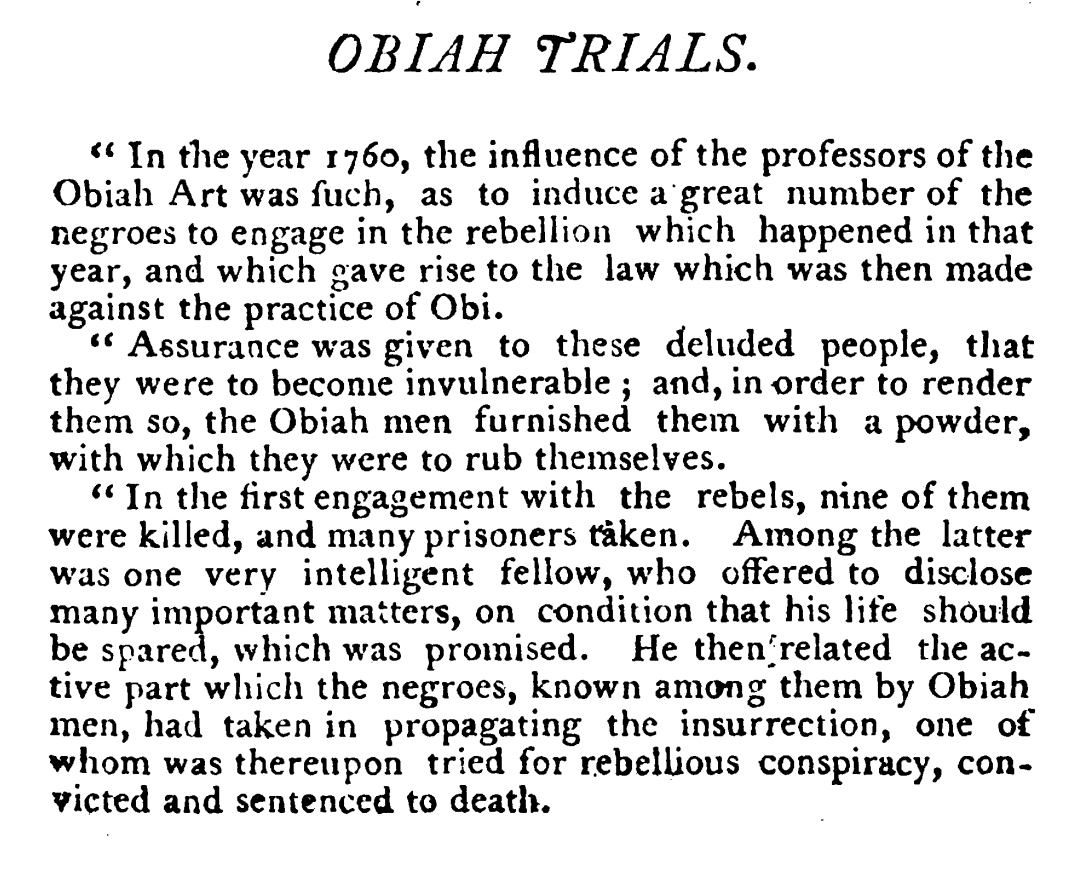Obeah and the Law
What laws were enacted to stop the practice of Obeah?

The Courtroom scene from the second edition of William Earle's popular novel Obi; or, The history of Threefingered Jack. In a series of letters from a resident in Jamaica to his friend in England. published by Thomas & Whipple,Newburyport in Worchester, Massachusetts in 1804. [Excerpt from page 58 of this edition].
Laws against the practice of Obeah spread around the Caribbean, but, as the "magical art of resistance," the illegality of Obeah appeared only to increase its cultural power and appeal. The rise of Obeah caused a Trans-Atlantic uproar, and the British courts became involved, leading to an ensuing public outcry. By the late 1790s the British Empire had aggressively campaigned against Obeah, and thus sets of laws were designed to punish Obeah, usually by death. Due to the complex nature of Obeah, it was neither easily deciphered nor proven. Many enslaved, Creole, and free Black people were killed or punished without justifiable proof of practice.
In addition, as a result of British fear, an increase in missionaries were sent to the islands, changing the culture and the religious aspects of the Caribbean people. Not only were people being punished for practicing Obeah, but there was also a new stress and pressure to convert to Christianity, further alienating them from their African religious heritage.
The anti-Obeah laws coincided with the legal end of slavery in the early 1800s, which lead to a rapid decrease in the number of enslaved people being brought to the Caribbean from Africa. While that was a movement in the right direction, the combination of the two laws and the increase in missionaries resulted in a loss of distinctive 'Africanness' among the enslaved and free black people. As a result, the populations of both enslaved and free blacks became increasingly creolized, creating a new (predominately Christian) culture. However, this was not an end to obeah, fitting with the 'Obeah is anything and everything' model, Obeah was adopted and adapted by Creole and Indigenous populations who mixed it with their own native religions.
Despite legal (and religious challenges) Obeah still was able to thrive in the Caribbean, and through the 1800s would be the topic of many plays, works of fiction, and media/non-fiction publications throughout the British Empire. Check out our Obeah Narratives Collection to learn more!
